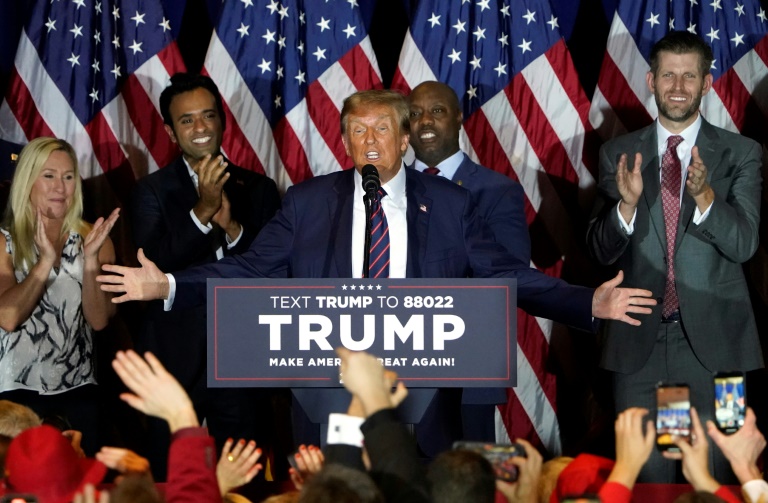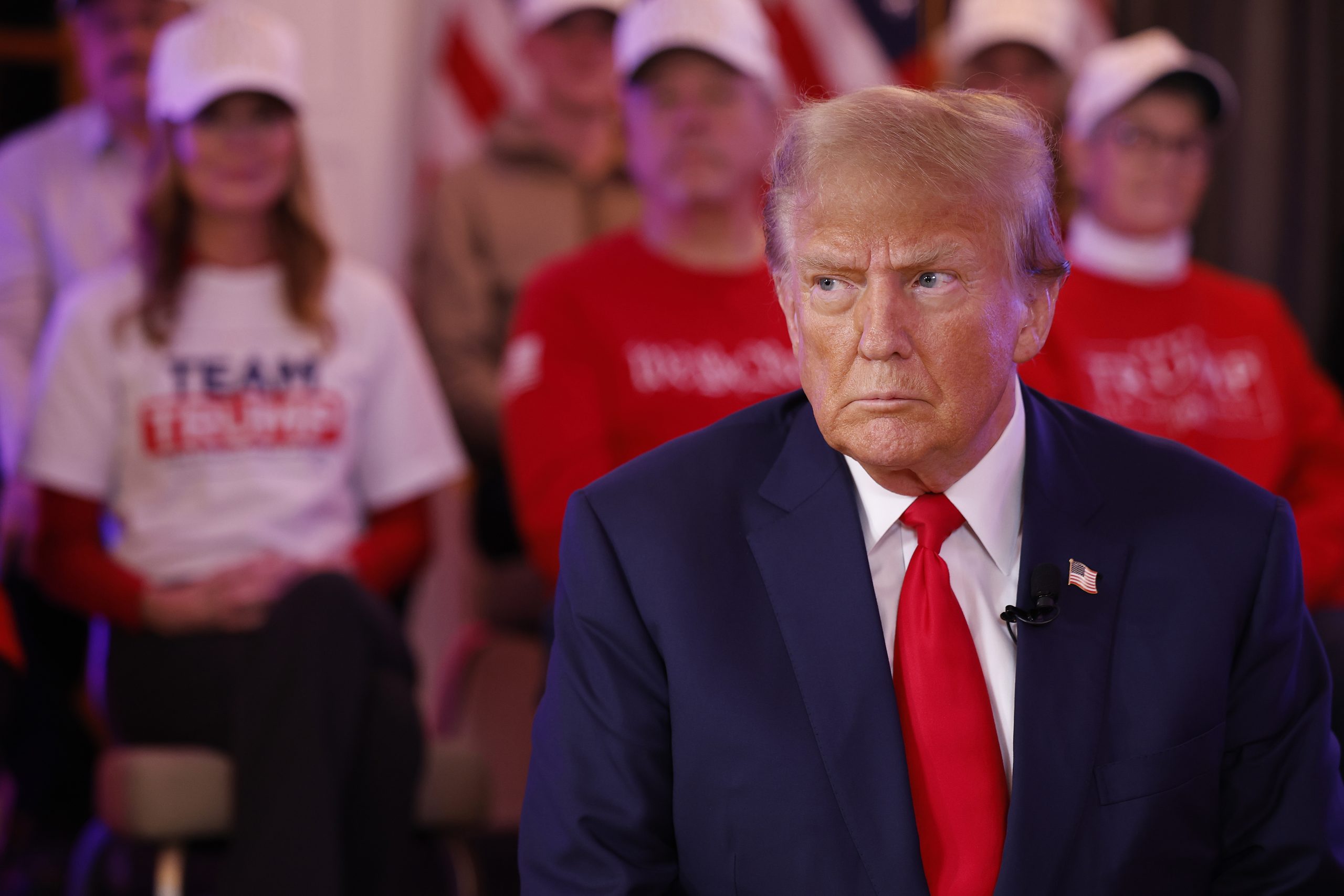As former President Donald Trump solidifies his position in the GOP primaries and gains traction over President Joe Biden in national polls, questions arise about potential obstacles to his reelection campaign. Despite a significant lead, voters highlight a major vulnerability: the prospect of a criminal conviction.
Various polls consistently show that a substantial number of voters, who may overlook Trump’s existing indictments, express reluctance to support him if convicted of a felony. This sentiment, if widespread, could pose a considerable hindrance to his return to the White House.
The unfolding narrative of the prosecutors’ race against time emerges as a crucial aspect of the 2024 election cycle. Legal teams nationwide are working diligently to overcome Trump’s attempts to delay legal proceedings and extend the start dates of his trials beyond November.

Warning Signs for Trump: Polls Indicate a Conviction Would Spell Disaster for His Campaign (Credits: Barron’s)
According to polls, nearly a quarter of Trump’s supporters believe he should not be the nominee if convicted of a crime. A majority of Americans, 57%, express unwillingness to vote for Trump if convicted, with around one-third of Republicans sharing this stance. In key states like Iowa and New Hampshire, significant portions of voters oppose the idea of electing a convicted felon as president.
However, legal experts highlight the uncertainty surrounding Trump’s likelihood of facing trial in any of the four cases this year. Prosecutors initiated indictments in 2023, leaving limited time to navigate the legal process. Trump has employed various tactics to impede the proceedings, posing a challenge to prosecutors.
The most substantial case, centered on Trump’s alleged efforts to undermine the 2020 election, is currently in Washington, D.C. Here, District Court Judge Tanya Chutkan, appointed by former Democratic President Barack Obama, plays a pivotal role.
Chutkan has expressed concerns about the case timeline and even threatened to adjust the trial start date as a response to Trump’s non-compliance with a gag order. The trial, initially set for March 4, is currently on hold pending Trump’s appeal regarding presidential immunity.
If the D.C. case faces prolonged delays, Trump could potentially face trial in New York City first. The Manhattan trial, involving charges brought by Manhattan District Attorney Alvin Bragg, centers on falsifying business records related to a payment to Stormy Daniels. However, this indictment presents weaker charges compared to other cases, potentially resulting in a less severe sentence for Trump.
Apart from federal charges in South Florida and state charges in Atlanta, Georgia, the complexity of these cases, coupled with potential delays, raises questions about their impact on the election.
Trump’s return to the White House could potentially influence the resolution of his legal issues, allowing him to wield significant power in addressing the charges against him. The intricate legal landscape adds an additional layer of uncertainty to the unfolding political scenario.























